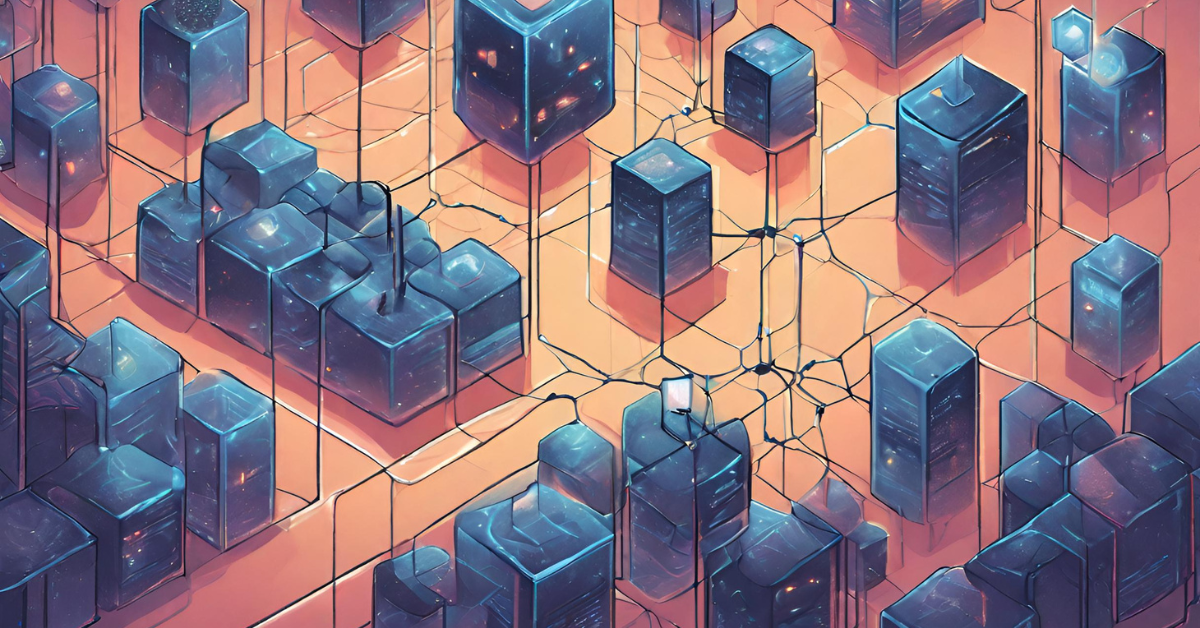
Decentralization: The Key to Freedom in an Era of Censorship
One of the aspects of decentralization that I find most compelling isn’t merely the financial incentives that seem to drive many individuals towards adopting new blockchain-based technologies, but rather the immutability inherent in the technology.
When data is added to most robust blockchains, subsequent blocks are built upon previous ones. To ensure the integrity of both past and future blocks, access to the data contained within those preceding blocks is necessary.
This imbues the contents of those earlier blocks with immutability. Should any part of a previous block be altered or removed, it renders the entire block invalid, thereby compromising the validity of all subsequent blocks.
The immutability of blockchain is truly unparalleled, rendering it one of the most disruptive technologies in existence. Consider this scenario: you reside in an oppressive regime, yearning to voice dissent. Perhaps you’re an artist, compelled to disseminate flyers bearing poignant anti-government messages across the city.
Yet, in the blink of an eye, government agents, police, or sympathetic informants scour the streets, tearing down your flyers. Your voice is stifled, your message lost in the void of censorship.
Enter blockchain. Here, you possess the power to embed your artwork, flyer, or message. But I’m not referring to simply minting an NFT on a centralized platform, where your creation remains vulnerable to deletion. No, I’m talking about embedding your flyer directly onto the blockchain, where its presence is indelible. Once etched into the immutable ledger, your message stands as a beacon of resistance, impervious to censorship or suppression.
In centralized systems, you’re typically assigned a username and password, which are then stored in a database. However, at any given moment, the entity managing that database—be it a company, individual, or organization—holds the power to revoke your access. With a simple deletion of your information from their database, your connection to your social media profile can be severed. This deletion swiftly ripples through interconnected databases, leaving you locked out of your own digital domain.
In the realm of blockchain technologies, a sophisticated system of public and private keys reigns supreme. Your private key serves as the guardian of your digital realm, a cryptographic sentinel granting access to your account. As long as you safeguard this key, you retain full autonomy over your digital domain—no external authority can intervene or sever your connection. It’s a paradigm of digital sovereignty, where ownership and control are firmly in your hands.

This array of technologies isn’t limited to coins, tokens, or token economies; their transformative potential extends far beyond currency-centric applications. While we haven’t seen many technologies leveraging this new technology outside of those driving financial gains the time will come when they begin to do so.
While I recognize the valuable role that economically-driven projects play in promoting and popularizing emerging technologies, I personally refrain from hopping onto trends like alternative tokens or “shit coins,” as they’re often referred to in the Bitcoin community.
It’s undeniable that the financial incentives associated with these systems contribute to their widespread adoption. Offering individuals a financial incentive serves as a powerful motivator for spreading awareness and adoption of new technologies.
However, I firmly believe that the most impactful aspects of these innovations stem from motivations beyond mere financial gain. One such crucial purpose is the fight against digital censorship, a driving force that deserves more attention within discussions surrounding blockchain technologies.
Let’s be realistic about censorship and blockchain technologies. Unlike some proponents who paint them as immune to censorship, I’m not here to oversell. While censorship is less likely on these platforms, it’s not impossible.
Presently, the United States has initiated sanctions lists concerning Bitcoin and Ethereum, leading some miners to abstain from including transactions involving certain addresses. Consequently, these transactions are omitted from the blocks they mine. However, if even one miner is willing to include these transactions in a block, they will become part of the blockchain. Subsequently, miners who initially excluded these transactions must still accept the newly formed block to maintain consensus with the network, a vital aspect in the ongoing process of block generation.
This encapsulates the true essence of the technology: as long as certain participants are willing to extend services to others, the network will persist in offering access to those services to all users. While censorship isn’t entirely impossible, it becomes progressively challenging, costly, and complex to execute at scale, particularly as the network expands and evolves.
The financial incentives inherent in mining provide players with a motivation to ensure the network remains accessible to a wide user base. As the number of transactions included in a block increases, so do the block’s fees, resulting in greater earnings for miners who confirm these transactions. While these technologies are predominantly employed as financial systems, the underlying system is adaptable for various other uses. Consequently, the ongoing financial incentives to include these services and transactions will persist, ensuring the continued operation of the system.
While some advocate for these systems to remain primarily focused on financial transactions, as long as there are individuals seeking to embed content within these systems and are willing to cover the associated fees, there will likely be others motivated to include such items due to the financial incentives involved. This financial motivation appears to be a significant driving force for participants across various contexts, suggesting that non-financial transactions will persist.
The incentives built into blockchain technologies persist even when content faces censorship from a major entity. This characteristic makes blockchain a potent tool in the fight against censorship. Shutting down such networks would necessitate substantial and foundational alterations to the Internet’s operation, requiring unanimous agreement from all stakeholders or the drastic measure of shutting down the entire internet globally. Given the ubiquitous presence of the internet in our daily lives, such actions are highly improbable. Consequently, blockchain systems are likely to persist.
The enduring nature of censorship resistance ensures a future where the freedom to create, share, and remain immutable persists. It’s truly remarkable to contemplate.